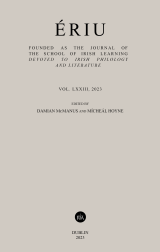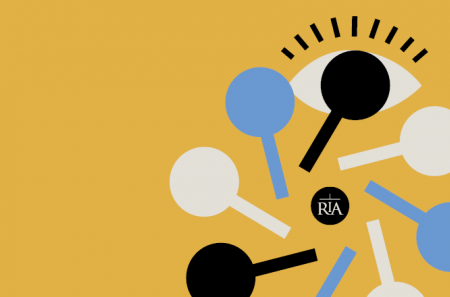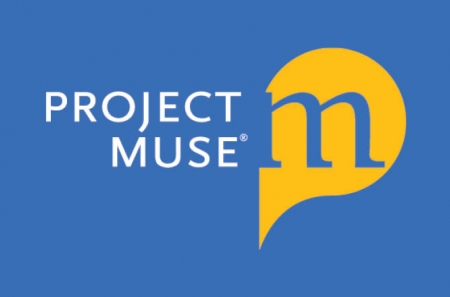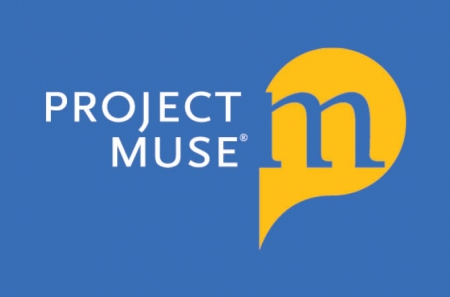Ériu LXXIII (vol 73) 2023 (print copy)
Edited by: Mícheál Hoyne and Damian McManus
Ériu is devoted to Irish philology and literature, and from its foundation in 1904 the peer-reviewed journal has had a reputation internationally among Celtic scholars. In the century since its inception, Ériu has served as an outlet for the work of the early standard bearers of Irish language studies and Celtic studies and of each new generation of researchers in turn.
Earlier issues, along with the most recent issue, are available in print form exclusively here on our website or by subscription to MUSE, and can be viewed here. Many of the articles on MUSE have been made Open Access (OA)
ISSN 0332-0758
In this issue:
Old Irish Námae 'Enemy' and the Celtic NT-Stems - Lionel S. Joseph, pp. 1-28
Athraigh Gléas, a Ghiolla Íosa: Dán ar Dhroch-Chláirseoir - Deirdre Nic Chárthaigh, pp. 29-41
'Brian's Sword' and the 'Standard of the King of the Saxons' in the Irish Annals: The Godwinsons, Hastings and Leinster–Munster Relations - Caitlin Ellis, pp. 43-62
Gofraidh Óg Mac an Bhaird Cecinit: 8. Tarla Leónadh don Leith Tuaidh - Eoin Mac Cárthaigh, pp. 63-87
Imtheachta Aeniasa's Lúireacha Re-Visited - Erich Poppe, pp. 89-96
Retiring Bards: The Motives Behind the Professional Bards' Religious Compositions - Katharine Simms, pp. 97-103
Paradigm Splits and Hiatus Forms: The Origins of Modern Irish Sceach and Scottish Gaelic Sgitheach 'Thorn Tree', and The Old Irish Precursor of Scottish Gaelic Dìthean 'Flower' - Mícheál Hoyne, pp. 105-119
Dia do Bheatha i N-Adhbhaidh Th'athar: Blúire de Dhán do Dhonnchadh Mac Carthaigh (†1665) - Philip Mac a' Ghoill, pp. 121-128
Varium: Dislighe luirg - John Carey






